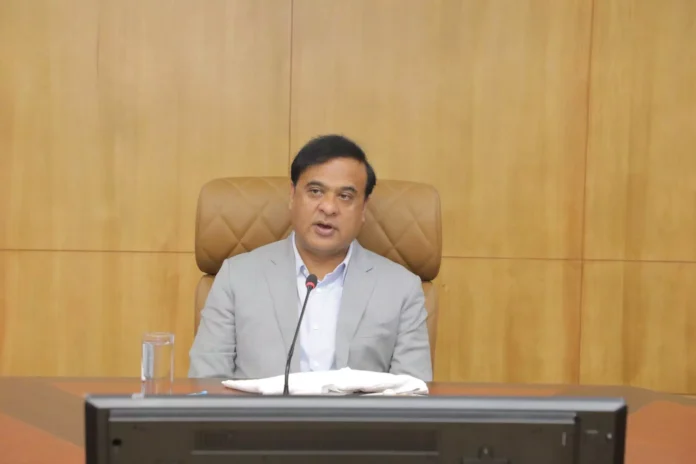Assam Chief Minister Himanta Biswa Sarma has sharply criticized the Congress party for what he termed as its hypocrisy in its recent comments regarding the Supreme Court. Sarma’s remarks came amid a growing row between the Congress and the judiciary, with the Chief Minister calling for an unconditional and unwavering respect for the judicial system.
The issue gained traction after Congress leaders took strong stances against the Supreme Court, questioning its independence and decision-making process in various matters. Sarma, however, was quick to point out what he believes is a fundamental contradiction in the Congress’s position. He emphasized that respect for the judiciary should not be conditional or selective based on political convenience. Sarma’s statement comes at a time when the judiciary, especially the Supreme Court, has come under increasing scrutiny from political parties across India, including Congress.
According to Sarma, it is essential for all citizens and political parties to respect the judicial processes regardless of their personal or political affiliations. He stated that it is not only a legal obligation but also a moral one to uphold the sanctity of the judicial system. In his comments, Sarma reminded Congress of its own history, asserting that the party had long enjoyed the benefits of a robust and impartial judiciary but had now turned its back on it when decisions did not go in its favor. He accused the opposition party of attempting to undermine the judiciary for short-term political gains.
The controversy began when Congress leaders launched a series of critiques aimed at the Supreme Court, particularly in relation to its rulings on issues that had been significant in recent political debates. These included decisions on electoral reforms, political appointments, and the handling of controversial cases that were seen as politically sensitive. Sarma responded by arguing that the judiciary’s role is to interpret the Constitution and provide justice, irrespective of the political pressures or criticisms from any quarter. He highlighted the importance of maintaining the separation of powers, a fundamental aspect of India’s democratic framework.
The Chief Minister further stated that political leaders should refrain from questioning judicial independence, as it compromises public confidence in the legal system. He pointed out that the Congress’s criticism of the judiciary was not only damaging to the institution itself but also detrimental to the larger democratic fabric of the country. Sarma made it clear that while constructive criticism of any institution is a healthy practice in a democracy, undermining the judiciary for narrow political purposes crosses a dangerous line.
Sarma also stressed that the respect for the judiciary should be universal and apply to all sectors of society. He expressed his disappointment that a major political party like Congress would indulge in actions that he felt weakened the integrity of the courts. “Respecting the judiciary should not depend on which side of the political aisle you are on,” Sarma said, reinforcing the idea that judicial respect is a cornerstone of any democracy and that its erosion leads to greater societal harm.
In his remarks, Sarma called on the Congress to acknowledge the crucial role the judiciary plays in upholding the Constitution and ensuring justice, free from political interference. He also suggested that political parties, regardless of their ideology, should make a concerted effort to promote judicial independence and avoid making statements that might endanger public trust in the system.
Sarma’s comments have drawn a mixed response from political circles. While many of his supporters have applauded his defense of the judiciary, some critics have questioned the government’s own commitment to judicial independence, citing instances where the Assam state government’s actions were seen as controversial by some legal experts. The debate over the relationship between politics and the judiciary continues to be a highly sensitive and divisive issue in Indian politics.
As the row between Congress and the judiciary continues to unfold, Sarma’s call for unconditional respect for the judiciary remains a point of contention. His remarks suggest that, for him, the independence of the judicial system is non-negotiable and that any attempts to politicize it are damaging to the larger health of the democratic process. Whether the Congress will reconsider its stance remains to be seen, but the discourse over the judiciary’s role in Indian politics is expected to continue to intensify in the coming weeks.


